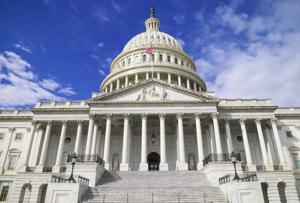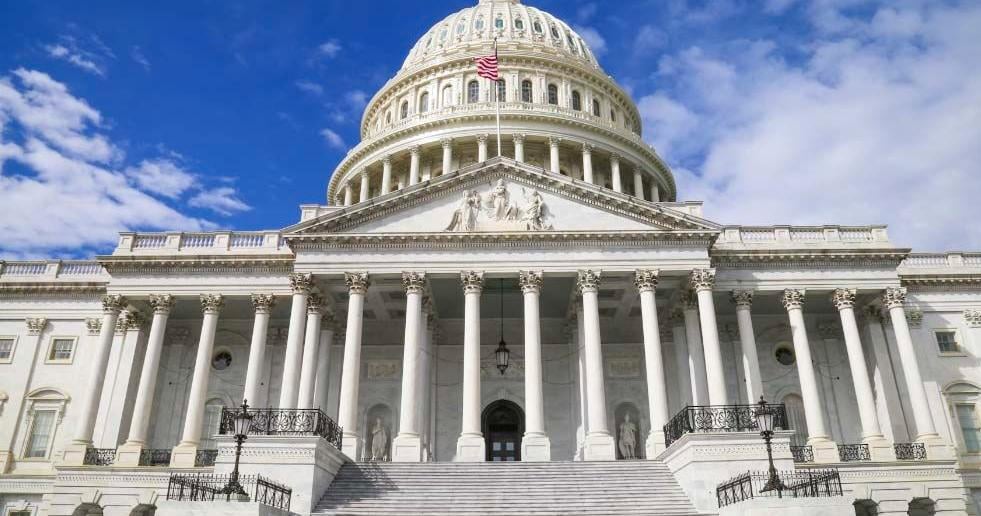
WASHINGTON, D.C. – After a bruising month-long fight in the U.S. House, congressional lawmakers sent a bill reauthorizing the government’s powerful surveillance authority to the Senate, with an April 19 deadline for approval there.
U.S. Rep. Blake Moore (R-UT) voted for that bipartisan legislation aimed at reforming the Foreign Intelligence Surveillance Act, along with 272 of his congressional colleagues.
The controversial measure was opposed, however, by 147 progressive Democrats as well as staunch conservatives in the House.
“I voted in favor of the Reforming Security and Intelligence Act (RISA),” Moore said April 12 in defense of his somewhat uncharacteristic vote.
“That measure contains a vital set of 56 long-overdue reforms to the Foreign Intelligence and Surveillance Act (FISA) … that will protect U.S. national security, prevent the Federal Bureau of Investigation from abusing the program for political purposes and protect the constitutional rights (of average citizens).”
Section 702 of FISA allows the U.S. government to collect digital communications of foreigners located outside the United States. But that program also allows federal authorities to routinely scan the communications of American citizens and the FBI to search that data, according to the inside-the-Beltway journal Roll Call.
Reauthorizing Section 702 became a bitter bone of contention in the House because the FBI used that provision of FISA to illegally spy on the campaign of former President Donald Trump in 2016.
The Senate must pass the House RISA measure by Friday, when the government’s Section 702 lapses, but privacy hawks in the upper house of Congress are already sharpening their knives.
Sen. Mike Lee (R-UT) is among those critics and he took to social media to urge his constituents to push House members to reconsider the bill.
“FISA 702 should not be reauthorized without a warrant requirement to protect Americans,” he posted.
Lee and other Senate conservatives are united in the belief that FISA 702 should either be fixed or shut down.
Moore explains that Congress added Section 702 of the FISA law in 2008 to enable U.S. law enforcement to analyze foreign intelligence data even if it was acquired in the United States.
“For years,” he adds, “federal courts have ruled that Section 702 collections do not violate the Fourth Amendment (which protect Americans from unreasonable searches) or restrict American’s constitutional rights because they specifically target foreign nationals not protected by the U.S. Constitution to begin with.”
During heated House debate last week, lawmakers considered the so-called Biggs-Jayapal-Nadler amendment to the RISA legislation. That amendment would have established an unprecedented “super warrant” requirement for lawfully collected data on foreign nationals.
“Requiring the FISA court system to authorize a warrant on the front end before law enforcement can use any foreign information collected under Section 702 would be logistically impossible and kneecap our counter-terrorism and counter-narcotics efforts,” Moore emphasized.
Senate Minority Leader Mitch McConnell (R-KY) agrees with that assessment, saying that advocates for the “super warrant” requirement for FISA had obviously forgotten the lessons of the terrorist attack on the U.S. on Sept. 11, 2001.
“Misguided effort that require a criminal-law warrant to sort and organize data on U.S. persons would … end the ability of the FBI to keep American safe,” according to McConnell.
Moore also contributed his vote to a 212-212 tie in the House that rejected the Biggs-Jayapal-Nadler Amendment on April 12.
Moore praises the FISA legislation now being considered by the Senate for including timely reforms that would enable intelligence experts to go after Mexican narcotics cartels at their source.
“The rest of the bill has 56 overdue reforms to Title 1 of FISA to ensure that what happened to the Trump campaign in 2026 – when the FBI improperly manipulated FISA applications to the Foreign Intelligence Surveillance Courts (FISC) using faulty opposition research – will never happen again,” Moore says.
“It also increases criminal penalties for abusing FISA or leaking FISA applications for political purposes and prevents the FBI from using opposition research to get a FISA order.”

